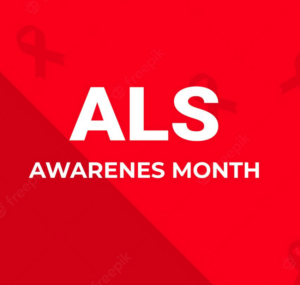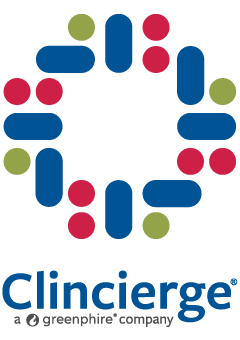In 1992, then-President George H.W. Bush designated the month of May as National Amyotrophic Lateral Sclerosis (ALS) Awareness Month with the signing of Proclamation 6426. In the years since, ALS patients, healthcare providers, and advocacy groups have used May of each year to bring attention to this rare disease that attacks the central nervous system.
French neurologist Jean-Martin Charcot first identified the disease in 1869. ALS is a devastating neurodegenerative disorder affecting the brain and spinal cord nerve cells. The disease progresses rapidly, impacting the muscles needed to speak, breathe, swallow, and walk. Currently, all ALS cases are terminal, but a few treatments can slow down the progression of disease symptoms. Most patients decline quickly, succumbing within three to five years from diagnosis.
Amyotrophic Lateral Sclerosis is also referred to as Lou Gehrig’s disease. Gehrig was a New York Yankees first baseman forced to retire from the game in 1939 after 17 years with the team. It was later revealed he had ALS, and sadly, Gehrig died just two years later at the young age of 38. After his diagnosis, the disease became widely known as Lou Gehrig’s disease.
- The disease currently affects approximately 15,000 Americans
- ALS most often presents in individuals between the ages of 55 and 75
- Men are affected at a slightly higher rate than women
- Military veterans are diagnosed with ALS over 1.5 times more often than their civilian counterparts
- Researchers believe ALS is often a result of genetic makeup coupled with one’s environment

- Characterized by more than one family member receiving an ALS diagnosis
- Up to 10% of ALS cases are genetic in nature
- Only one parent needs to carry the genetic mutation to pass the disease to the next generation
- An individual with familial ALS has a 50% chance of sharing the gene with their child
- Instances of frontotemporal dementia (FTD) are increased in those with familial ALS
- The age of onset for familial ALS is earlier, sometimes appearing as early as one’s 30s or 40s
Bulbar-onset ALS
- The disease initially affects motor neurons in a patient’s brain
- Patients first notice difficulty in speaking or swallowing
Spinal-onset ALS (also referred to as Limb-onset ALS)
- The disease initially affects motor neurons in a patient’s limbs
- Patients first notice issues in hands, arms, or legs
Medical researchers continue to work to find treatments for Amyotrophic Lateral Sclerosis.
Personalized support services for ALS patient populations
Clincierge has the knowledge and expertise to provide personalized patient support for clinical trial participants diagnosed with Amyotrophic Lateral Sclerosis. Clincierge Coordinators learn about the nuances of this disease and proactively devise travel and support programs to benefit this specific patient population. Due to the rare nature of familial ALS, there is a much smaller patient population and fewer clinical trial sites. Many patients must travel internationally to receive the treatments they so desperately need.
Coordinators understand the rapid deterioration of the patient’s health and work closely with the caregiver to create a plan of action to keep the patient safe and comfortable during travel and site visits. Often, the patient’s condition fluctuates significantly from month to month, and the Coordinator must stay abreast of these changes and how they might impact upcoming travel and site visits.
- For instance, many patients begin site visit travel in airlines’ business class but cannot tolerate fully-upright travel as their condition worsens. The Coordinator is always in close contact with the caregiver to assess when the patient will need reclining or lay-flat airline seats or create an alternative transportation method.
- After arriving at the airport, patients must be provided with wheelchair-accessible vehicles to provide transportation to the hotel and clinical site.
- Hotel accommodations must be ADA-Compliant and provide enough room for the patient’s wheelchair to move about freely.
- With familial ALS, the disease often presents in patients at a younger age, and many patients have young children living at home. Their Coordinator works to help alleviate any burdens on the family caused by the younger age of onset.
Improve patient experiences and remove barriers to participation
Patients in rare disease clinical trials often face unique challenges which can become barriers to their participation. By pairing each patient with a Clincierge Coordinator who is within their time zone, speaks their language, and understands their particular disease state, a personalized plan of action can be put into place to better support the patient and alleviate their burdens.
When pharmaceutical sponsors and clinical research organizations (CROs) provide patient support services, patients are more likely to enroll in a clinical trial and remain in the trial through completion. Patients and caregivers who opt-in for these services often report their extreme gratefulness for making the long, daunting travel much easier on them and their caregivers.
For more information, visit the ALS Association at https://www.als.org/.


